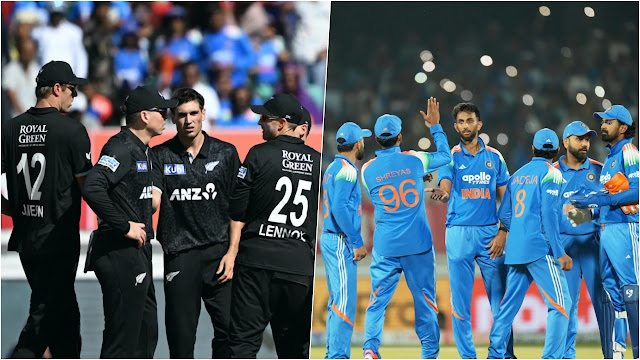Changed schedule of New Zealand tour, Team India will now play ODI series of as many matches, not three; Complete details revealed
IND vs NZ ODI Series schedule plan: Amidst the excitement of T20 World Cup 2026, big news has come out regarding the upcoming foreign tour of the Indian cricket team. The schedule of the New Zealand tour to be held in October-November 2026 may change. Where earlier this ODI series was fixed for three matches, now preparations are underway to increase it to five matches.
After about six years, Team India will tour New Zealand, so there was already a lot of excitement about this series. Now the discussion of increasing the number of matches has made this tour even more special. The Indian Cricket Board has proposed to extend this series with New Zealand Cricket.
IND vs NZ: Now ODI series can be of five matches, not three
As per the schedule, three ODI matches were to be played between India and New Zealand. But now there is news that it can be changed into a series of five matches. According to sources, New Zealand Cricket has also shown a positive attitude on this proposal.
It is being told that the presence of Rohit Sharma and Virat Kohli is considered important in this series. The playing of both the giants will not only increase the level of the series, but will also bring huge benefits to the broadcasters and sponsors. This is why emphasis is being laid on expanding this ODI series.
IND vs NZ: Waiting for the return of Rohit-Virat
Team India has reached the semi-finals in the T20 World Cup 2026, but the fans are clearly feeling the absence of Rohit Sharma and Virat Kohli. Both of them retired from this format after leading India to the T20 World Cup title in 2024.
Last year he also said goodbye to Test cricket. Now both play only in the ODI format and are preparing keeping the 2027 ICC ODI World Cup in mind. In such a situation, New Zealand tour can prove to be very important for him.
IND vs NZ: Performance of the last series against New Zealand
In January, India played an ODI series (IND vs NZ) against New Zealand at home, in which Team India had to face defeat 2-1. However, despite losing the series, Virat Kohli had performed brilliantly. He scored 240 runs in three matches, which included one century and one half-century. Whereas Rohit Sharma’s bat remained silent in that series. He played innings of 11, 24 and 26 runs and could not play big innings.


Comments are closed.